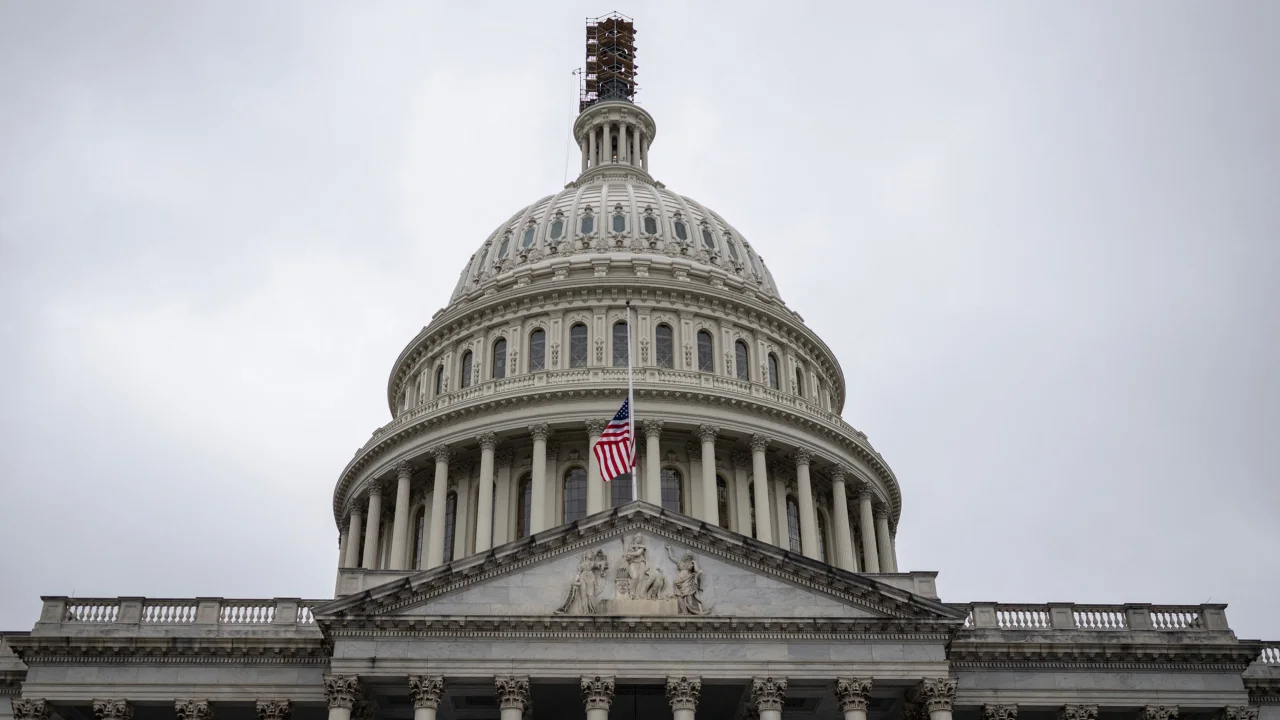In the United States, a shutdown was narrowly averted.
With only hours to spare, the House passed a short-term financing proposal with the support of a majority of Democrats and Republicans, defying the party’s most conservative members. The bill was immediately passed by the Senate and signed into law by President Joe Biden.
But just because House Speaker Kevin McCarthy came up with a last-minute fix doesn’t mean everything in government is now running smoothly again. It’s also not evidence that McCarthy has found a way to unite his Republican Conference.
The government accomplished something it rarely does this year by passing a law or resolution by agreeing to this budget accord. Since the start of this Congress in January, 14 legislation and resolutions have become law, including this stopgap measure to keep the government operating. It’s reasonable to consider that a negligible sum.
When the House and the presidency are held by opposing parties, this period in the legislative session (around September 25) has seen an average of about 70 bills or resolutions passed.
In fact, as of September 25th, there have only been 14 pieces of legislation signed into law, which is the lowest number in at least 50 years.
It’s not shocking that a dysfunctional government had trouble paying for itself.
Even more so, the Republican Party is still deeply divided. The fast-track mechanism under which the resolution to keep the government open was discussed required the approval of two-thirds of all members. Fewer than 60% of Republican House members voted in favour of the plan. Only because 209 House Democrats (more than 99% of their caucus) voted for it did McCarthy manage to get it passed.
In fact, McCarthy’s attempt to back out of a budget agreement reached earlier this year was a major factor that nearly led to a shutdown because he feared a challenge from the right wing of his party.
It was the conservatives at the beginning of the year who made it so many votes were cast in his speakership election.
No one can predict McCarthy’s condition after the temporary funding measure expires. It’s apparent that many Republicans are unhappy with his administration.
Voteview, an academic website, conducted an analysis of roll call votes and showed that more House Republicans are to McCarthy’s right than to his left.
It’s important to note that most of the legislators on McCarthy’s right aren’t the same hard-liners who have complicated his role as speaker. However, despite appearances, the GOP’s most conservative members are not on the outs with the party as a whole.
These hard-liners aren’t just making things up, to put it another way. They’re acting in this way because their views are shared by many Republicans. Many former and current Republicans have been listening to former president Donald Trump’s outspoken calls for a government shutdown.
The majority of respondents in a recent poll by Monmouth University agreed that compromising to prevent a government shutdown was more essential than remaining true to one’s ideals under any circumstances.
Republicans were much more divided on the issue, with 50% saying compromise is more important than beliefs and 46% saying the opposite.
Compared to Democrats, who were found in the poll to be 76% in favour of compromise and 21% in favour of sticking to their values, Republicans are on a completely different planet.
The hard-liners in McCarthy’s conference have threatened to remove him as speaker before, and following the bicameral vote, they may really follow through. Is there a plan B if McCarthy’s successor is even more to the right ideologically? While it appears that a shutdown was avoided this time around, that is no guarantee that it will not happen again.
A lot of Republicans will be celebrating along the way if McCarthy or his successor allows a shutdown to occur.
